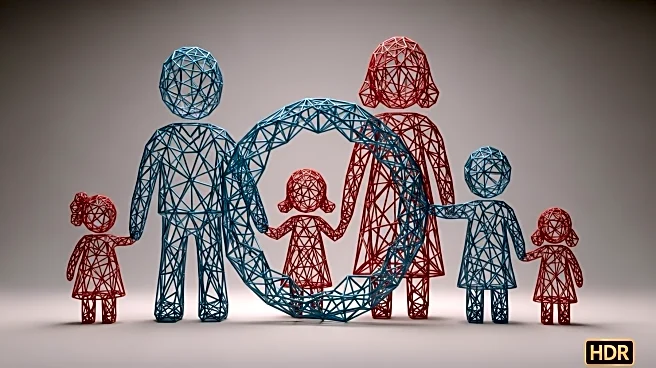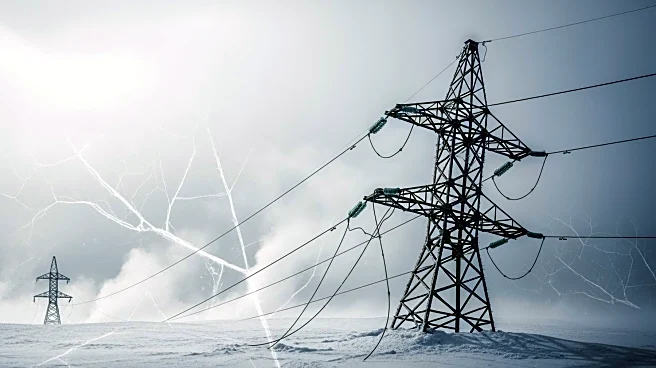What's Happening?
Jim Jarmusch's latest film, 'Father Mother Sister Brother,' is a triptych that delves into the dynamics of familial relationships through a series of understated interactions. The film, set in three different cities, features a cast of notable actors including Adam Driver, Cate Blanchett, and Charlotte Rampling. Each episode of the film presents a unique narrative centered around parents, children, and siblings, exploring themes of emotional distance and the complexities of family life. The film's minimalist approach and deadpan humor are characteristic of Jarmusch's style, offering a contemplative look at the nuances of human connections.
Why It's Important?
Jarmusch's film contributes to the ongoing discourse on the nature of family relationships, highlighting the often unspoken emotional gaps that exist between loved ones. By focusing on simple, everyday interactions, the film encourages viewers to reflect on their own familial ties and the importance of communication and understanding. The film's exploration of these themes resonates with audiences, offering a poignant reminder of the value of maintaining connections with family members. Jarmusch's work continues to influence the film industry, showcasing the power of storytelling in addressing universal human experiences.
What's Next?
Following its premiere at the Venice Film Festival, 'Father Mother Sister Brother' is expected to garner attention for its unique narrative style and thematic depth. The film may inspire other filmmakers to explore similar themes, using minimalist storytelling techniques to convey complex emotional narratives. As audiences engage with the film, discussions around the portrayal of family dynamics in cinema may emerge, potentially influencing future film projects and narratives. Jarmusch's film could also lead to increased interest in films that prioritize character development and emotional authenticity over traditional plot-driven storytelling.
Beyond the Headlines
The film's subtle exploration of familial relationships raises broader questions about societal norms and expectations surrounding family life. Jarmusch's portrayal of emotional distance and the challenges of communication within families may prompt viewers to consider the impact of cultural and societal pressures on personal relationships. The film's emphasis on simplicity and authenticity challenges conventional cinematic approaches, encouraging a shift towards more introspective and character-focused narratives. This could lead to a reevaluation of how family dynamics are depicted in media, fostering a deeper understanding of the complexities of human connections.








